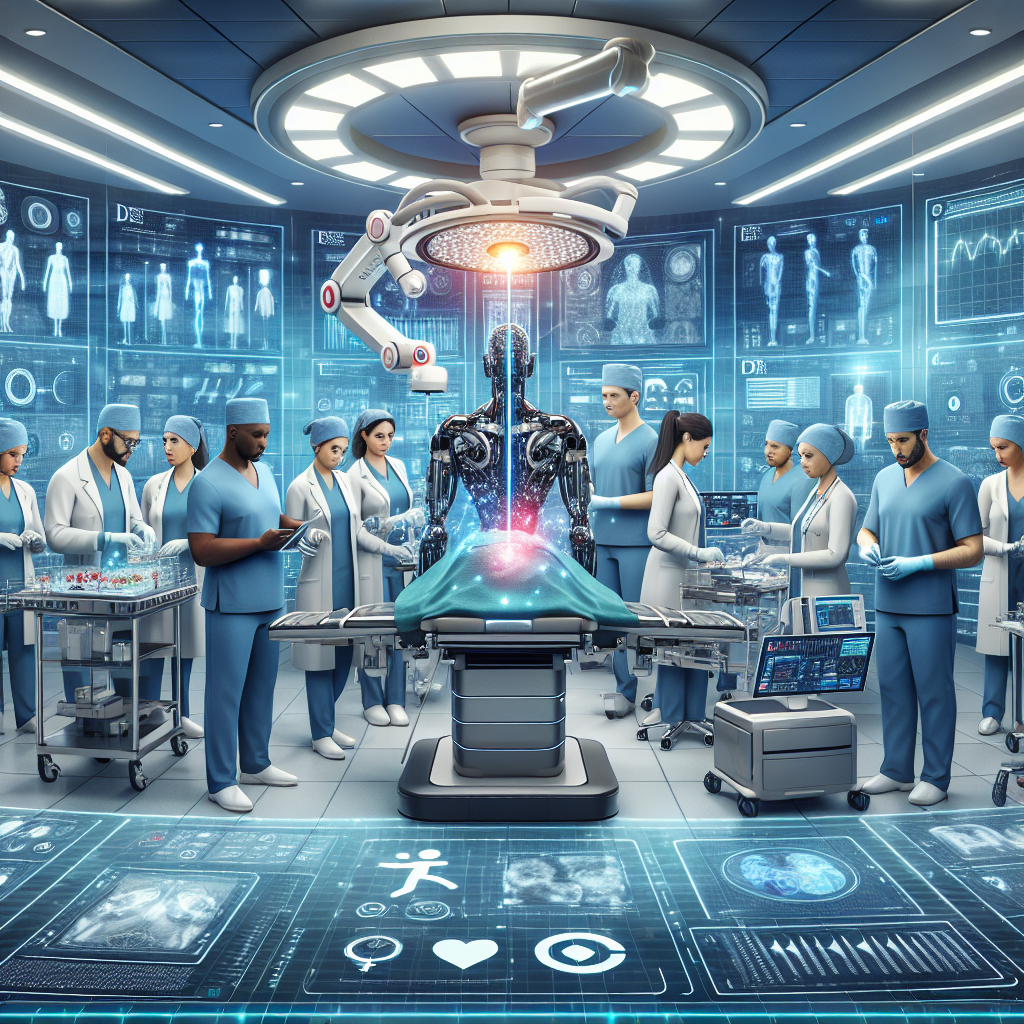Artificial General Intelligence (AGI) has been making significant strides in transforming various industries, and one of the most notable areas where it is making a profound impact is in healthcare. The integration of AGI technologies such as machine learning, natural language processing, and deep learning algorithms has revolutionized the medical field by enhancing patient care, diagnostics, treatment planning, and overall healthcare management.
AGI in Healthcare: Transforming the Medical Field
1. Improved Diagnostics and Early Detection
One of the primary ways in which AGI is transforming healthcare is through improved diagnostics and early detection of diseases. Machine learning algorithms can analyze vast amounts of medical data, including patient records, lab results, imaging scans, and genetic information, to identify patterns and trends that may indicate the presence of a disease or condition. This has been particularly beneficial in the early detection of cancer, cardiovascular diseases, and neurological disorders, where early intervention can significantly improve patient outcomes.
For example, IBM’s Watson for Oncology uses natural language processing to analyze medical literature, clinical trial data, and patient records to provide personalized treatment recommendations for cancer patients. By leveraging AGI technologies, healthcare providers can make more accurate and timely diagnoses, leading to better treatment outcomes for their patients.
2. Personalized Treatment Planning
AGI has also enabled healthcare providers to develop personalized treatment plans for individual patients based on their unique genetic makeup, medical history, and lifestyle factors. By analyzing large datasets of patient information, machine learning algorithms can identify the most effective treatment options for each patient, taking into account their specific needs and preferences.
For example, Google’s DeepMind Health has developed algorithms that can predict the progression of diseases such as acute kidney injury and diabetic retinopathy, allowing healthcare providers to intervene early and prevent further complications. By tailoring treatment plans to the individual needs of each patient, AGI technologies are helping to improve patient outcomes and reduce healthcare costs.
3. Streamlined Healthcare Management
AGI technologies are also transforming healthcare management by streamlining administrative processes, improving resource allocation, and enhancing patient engagement. Virtual health assistants powered by natural language processing can help patients schedule appointments, refill prescriptions, and access medical information more easily, reducing the burden on healthcare providers and improving patient satisfaction.
Furthermore, predictive analytics algorithms can help healthcare organizations optimize their resources by forecasting patient demand, identifying areas for improvement, and reducing inefficiencies in the healthcare system. By leveraging AGI technologies, healthcare providers can deliver more efficient and cost-effective care, leading to better outcomes for both patients and providers.
Frequently Asked Questions (FAQs)
Q: What is Artificial General Intelligence (AGI) and how is it different from Artificial Narrow Intelligence (ANI)?
A: AGI refers to a type of artificial intelligence that exhibits human-like cognitive abilities, such as reasoning, learning, and problem-solving, across a wide range of tasks. In contrast, ANI is designed to perform specific tasks or functions, such as image recognition or language translation, without the ability to generalize or adapt to new situations.
Q: How is AGI being used in healthcare?
A: AGI is being used in healthcare to improve diagnostics, personalize treatment plans, streamline healthcare management, and enhance patient engagement. Machine learning algorithms can analyze medical data to identify patterns and trends that may indicate the presence of a disease, while predictive analytics can help healthcare organizations optimize their resources and improve patient outcomes.
Q: What are some examples of AGI technologies in healthcare?
A: Some examples of AGI technologies in healthcare include IBM’s Watson for Oncology, Google’s DeepMind Health, and virtual health assistants powered by natural language processing. These technologies leverage machine learning, natural language processing, and deep learning algorithms to improve diagnostics, personalize treatment plans, and streamline healthcare management.
Q: What are the benefits of using AGI in healthcare?
A: The benefits of using AGI in healthcare include improved diagnostics and early detection of diseases, personalized treatment planning, streamlined healthcare management, and enhanced patient engagement. By leveraging AGI technologies, healthcare providers can deliver more efficient and cost-effective care, leading to better outcomes for both patients and providers.
In conclusion, AGI is transforming the medical field by enhancing patient care, diagnostics, treatment planning, and overall healthcare management. By leveraging machine learning, natural language processing, and deep learning algorithms, healthcare providers can improve patient outcomes, reduce healthcare costs, and deliver more efficient and personalized care. As AGI continues to advance, the possibilities for its application in healthcare are endless, promising a future where AI plays a central role in improving the quality of healthcare delivery.

